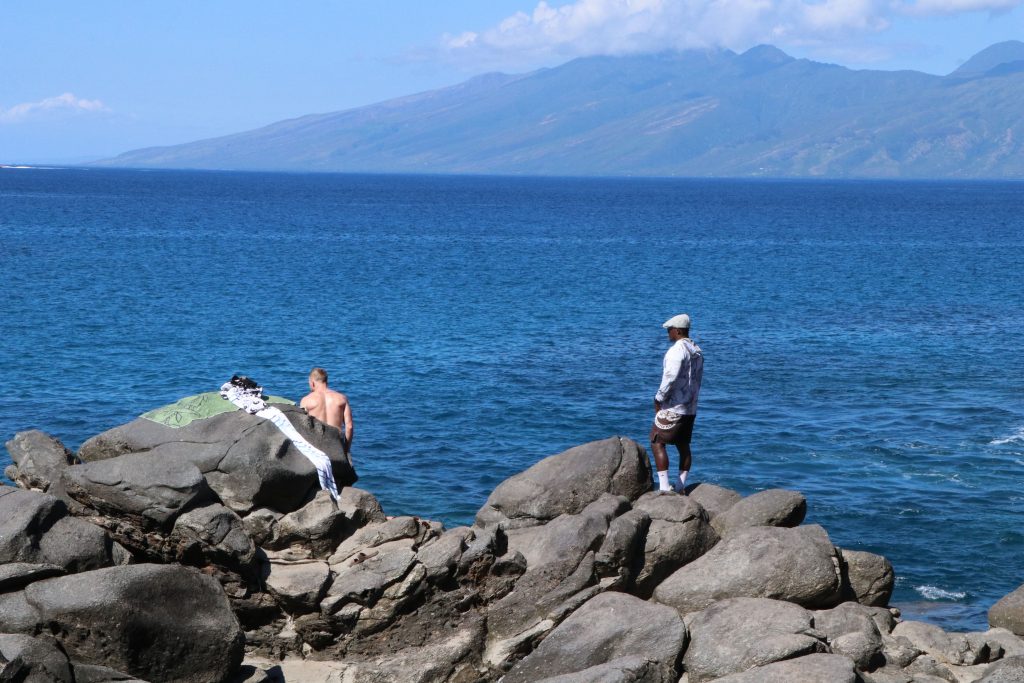A conflict between private property rights and recreational access along the rugged Nāpili coast, highlights the competing interests and strong emotions often evident in these disputes.
Last Friday, a trio of officers from the DLNR Division of Conservation and Resources Enforcement (DOCARE), met with two representatives from Hawai‘i Land Trust, which holds a conservation easement at Hāwea Point. The owner of an adjacent home in the area has responded to loud noise and alcohol and drug use among young people jumping off shoreline cliffs and into the ocean, by putting up now defaced, official-looking signs and by posting a security guard. Activity below the house is monitored by a security camera.
Shae Kamaka‘ala is Director of ʻĀina Protection and General Counsel for Hawai‘i Land Trust. “This Conservation Easement, protecting public access and recreation in perpetuity was created out of a settlement agreement with the original developers and concerned community groups. Hawai‘i Land Trust adopted the stewardship of this Conservation Easement in 2004, covering roughly two acres.”
Over the last few weeks DOCARE officers have been called to the area after homeowner complaints, as well as push-back from ocean users who claim the homeowner has tried to restrict access to the ocean by stationing a security guard and by putting up the signs.
While land title and jurisdiction along this coastline is unclear, “the trail is on private property but access to the water is protected by the Conservation Easement,” explained James Crowe, ʻĀina Stewardship Manager for Hawai‘i Land Trust. “As you near the part of the trail where you can see the Cliff House, everything makai (ocean side) of the trail belongs to the State. The concrete platform where the homeowner‘s security guard sits is private property, protected for public access and recreational use. The land makai of the platform is public land, but the land above that part of the trail is private property, not subject to the Conservation Easement.”
Hawai‘i Land Trust requested the homeowner to no longer have a security guard on site.
“Public access and recreational use protected by Conservation Easements, is limited by the laws restricting recreational use, whether they be county, state, or federal laws,” Kamaka‘ala commented. Those rules include no playing of loud music or drug and alcohol use. Visitors should also be aware that there are no trash cans or restrooms at Hāwea Point and should plan accordingly to avoid impacting the land or water in any way.
Kamaka‘ala added, “Shoreline access is a right derived by the Traditional & Customary use of the indigenous peoples of Hawaiʻi. Hawaiʻi Land Trust understands that Hāwea Point is an important ice box for ʻohana (families) of this area and perhaps resting grounds of ʻiwi kūpuna. We ask that everyone who enjoys, lives, and uses the area for access and recreation to also respect and acknowledge those who came before them.”
Hāwea Point is one of many places on Maui and around the state where large groups of people tend to congregate. We ask everyone at Hawea Point, whether they are property owners or recreational users, to respect everyone’s right to enjoyment of their private property and use of the public lands there,” said DOCARE Chief Jason Redulla.

